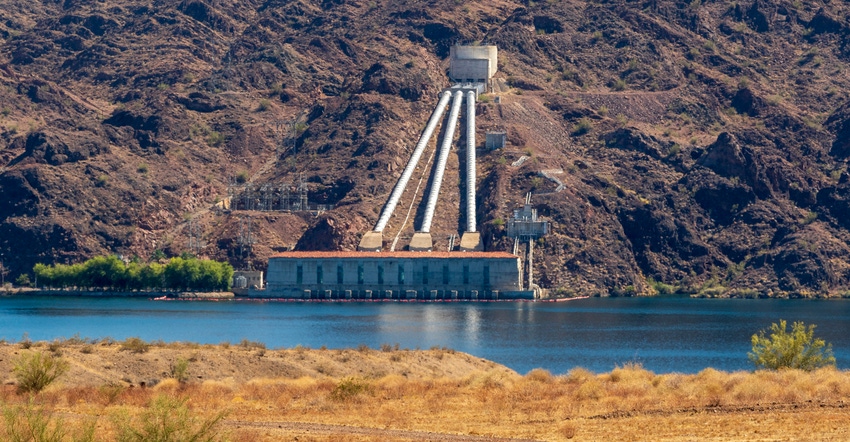
As Southern California water agencies brag on social media that their customers won't face water cutbacks this summer and next year, residents in neighboring states aren't so fortunate.
When California said it would provide only 5% of its promised water from the State Water Project to water users throughout the state, southern California did what it does well – take water from other states. It's that over-reliance upon Colorado River water that not only allows California lawmakers to "kick-the-can" of indecision, it also punishes residents in Arizona and Nevada for their failed public policy.
Is this smart practice by a state that boasts water law to enforce the sustainable management of groundwater within its own boundaries?
The question isn't "should" the river agreements that give California a significantly larger share of Colorado River water than the neighboring states be changed. Rather, the question is perhaps: should water deliveries via the Colorado be permanently curtailed to California?
Why does California deserve the lion's share of Colorado River water when it's only connection to the river is its common border with Arizona?
Before you cite chapter and code of water law, consider a river system so over-taxed by climate change and thirsty urban centers that at some point, likely sooner than later, the system will be unable to meet the basic needs of anyone in three states. The fallout will be catastrophic for Arizona and Nevada, not to mention the ecosystem of a 1,450-mile-long watershed.
Perhaps it's time for California to "sink or swim" when it comes to water. As Sacramento brags about its budget surplus, perhaps money better spent would be to meet the state's prolific demand for water from within. A good first step might be to curtail the state's access to the Colorado River so that lakes like Mead and Powell stand a chance at refilling.
Should residents of Phoenix and Las Vegas be made to suffer while California political leaders fail to meet the water demands of their own residents?
Is it arrogant for southern California water agencies to boast in social media of their secure water supply while Arizona and Nevada residents are being told to brace for more water cutbacks? How much water would be available to Arizona and Nevada if California didn't have a big straw in the Colorado River at Parker, Ariz. What if California public policy sought to manage its water resources as sustainably as has been asked of residents who pump groundwater for farms and homes?
These actions are not without consequences, and it's not just water. California officials were recently told that Lake Oroville will soon lose its ability to generate electricity from the hydroelectric plants affiliated with the state's large, earthen dam. How will this tax on the electric grid affect residents across the Southwest as summer temperatures soar to 120 degrees and demand for power soars?
About the Author(s)
You May Also Like






